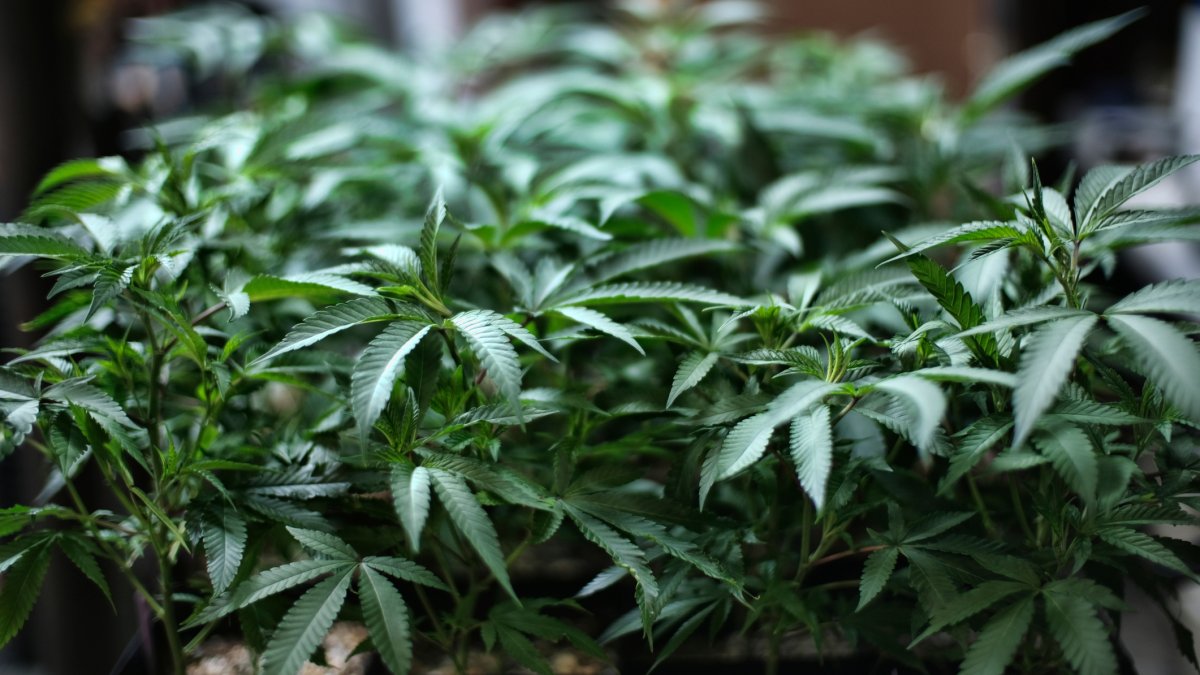
The state of Illinois has made millions in one year after the legalization of recreational marijuana. But could booming sales be even better? NBC 5’s Phil Rogers reports.
Cannabis is having a great first year in Illinois. Starting from zero when the first recreational dispensaries opened in Illinois last January, the industry has enjoyed sales of over $500 million. And, despite the pandemic, revenues have increased nearly every month.
"It's doing great," says Cory Rothschild, senior vice president of marketing for Cresco Labs. "There is no question that we are having tremendous sales across the entire industry."
Indeed, Rothschild said his company has seen a steady flow of first-time users in their Sunnyside retail stores. And whether that's due to curiosity or COVID-19 anxiety, the company came up with a new entry-level product called "Wonder" to meet the new demand.
"Our hope is to build brands that will help them have a great experience," he said.
The state of Illinois is already having a great experience with cannabis. In just the first 11 months of its existence, the recreational cannabis industry pumped over $150 million dollars in new tax revenue into state coffers.
"I can tell you that half a year into the program, we exceeded expected sales tax revenue by double," says Pam Althoff, the executive director of the Cannabis Business Association of Illinois. "The anticipated sales tax revenue was $25 million, and it was [actually] 52."
But as good as those numbers are, the industry argues they could be much bigger. That's because the state has balked at allowing some medical dispensaries, or medical/recreational hybrids, to move to more lucrative locations. Althoff believes at least nine dispensaries, maybe more, are being restricted by the state's position.
Local
"I believe they are missing an opportunity to increase sales," she said. "That really hurt the state of Illinois, as well as the dispensaries themselves."
Indeed, Althoff argues the state may be leaving $100 million in potential revenue on the table.
At issue is the state's interpretation of the governing statute, ruling that if medical licensees are moved, they cannot engage in recreational sales.
"We think it was the original intent of the bill's sponsors to allow relocation," Althoff said.
Cresco has at least two examples. In one case, the company was blocked from moving a tiny Wrigleyville location to a much larger space just a few blocks south. In another instance, the landlord at the company's medical dispensary in Buffalo Grove forbade them to add recreational cannabis, and a planned move to another location was also stopped by the state's interpretation of the law, even though village leaders in Buffalo Grove approved the change.
Village Manager Dane Bragg told NBC 5 the Cresco location has been a "good partner" for Buffalo Grove, and that the planned move could mean $40,000 per month in new revenue for his community.
"Obviously, we would like to find a positive way, working with the state, to get this location opened," he said.
An effort to straighten out the conflict in interpretation of the law stalled last May in Springfield. Althoff said proponents plan to make another run at it after the first of the year.
"We've been working all summer in talking to other legislators trying to explain to them the current situation," she said. "And I've received nothing but positive responses to that request."